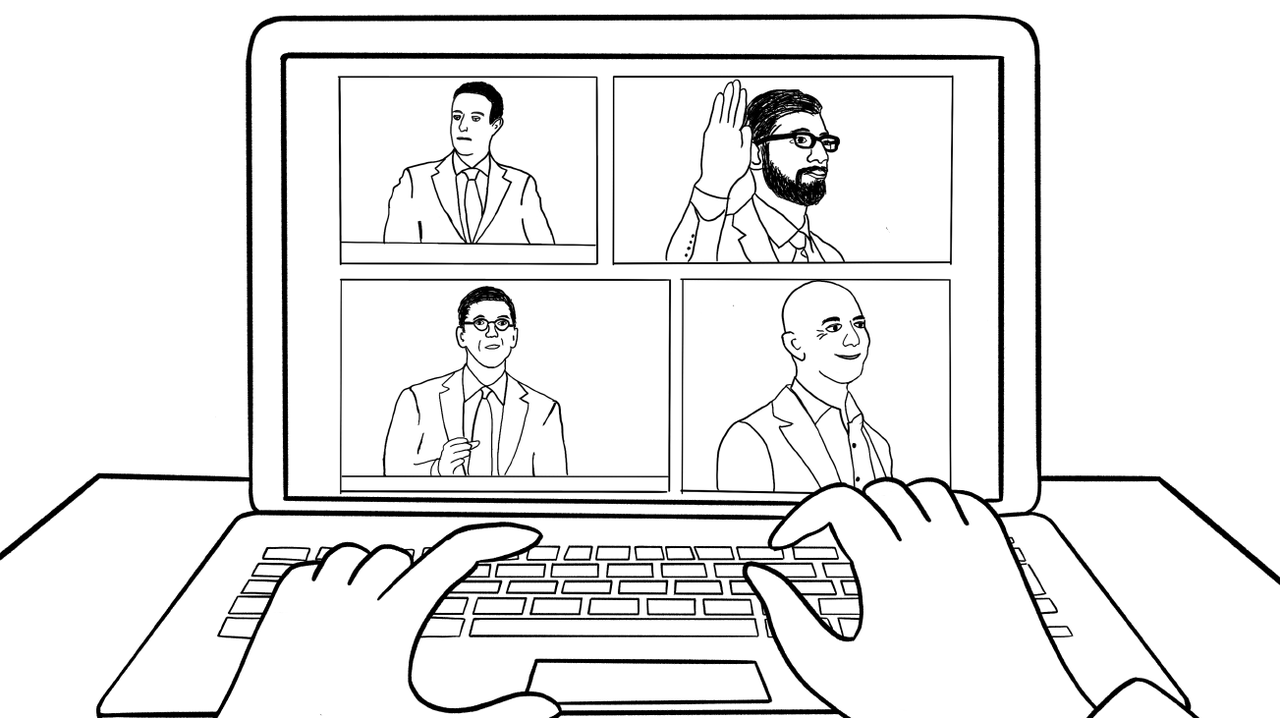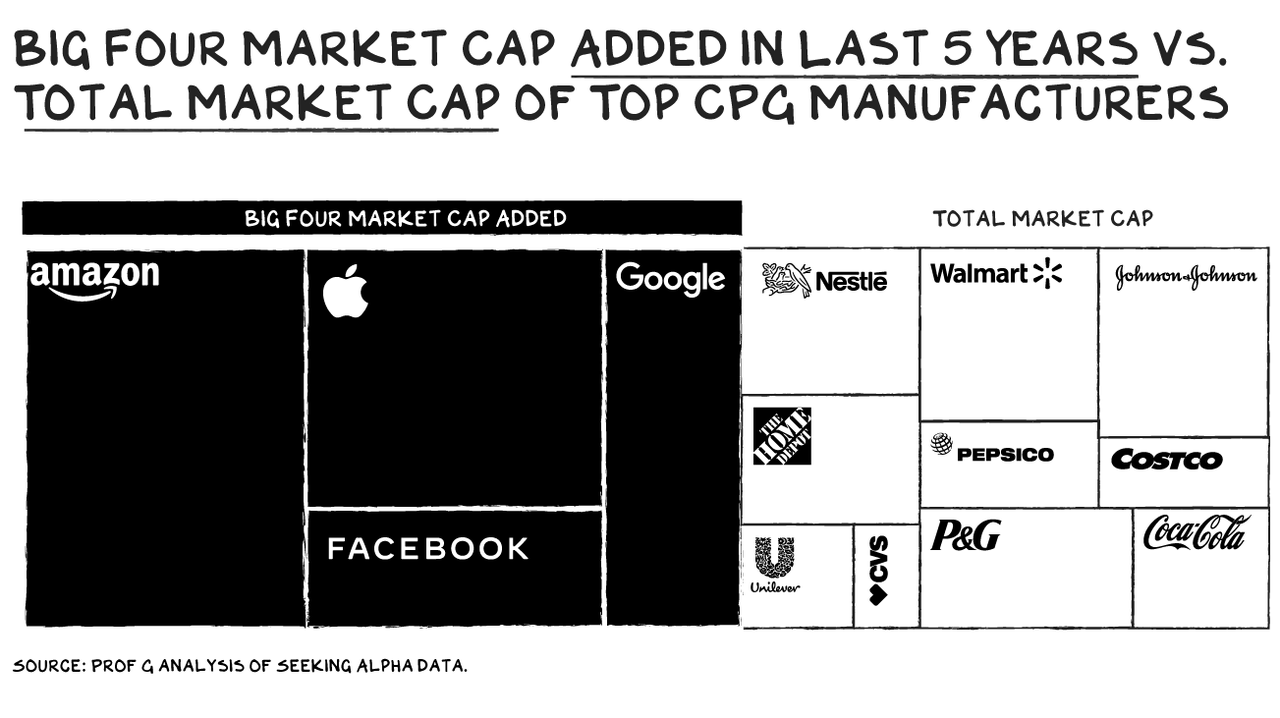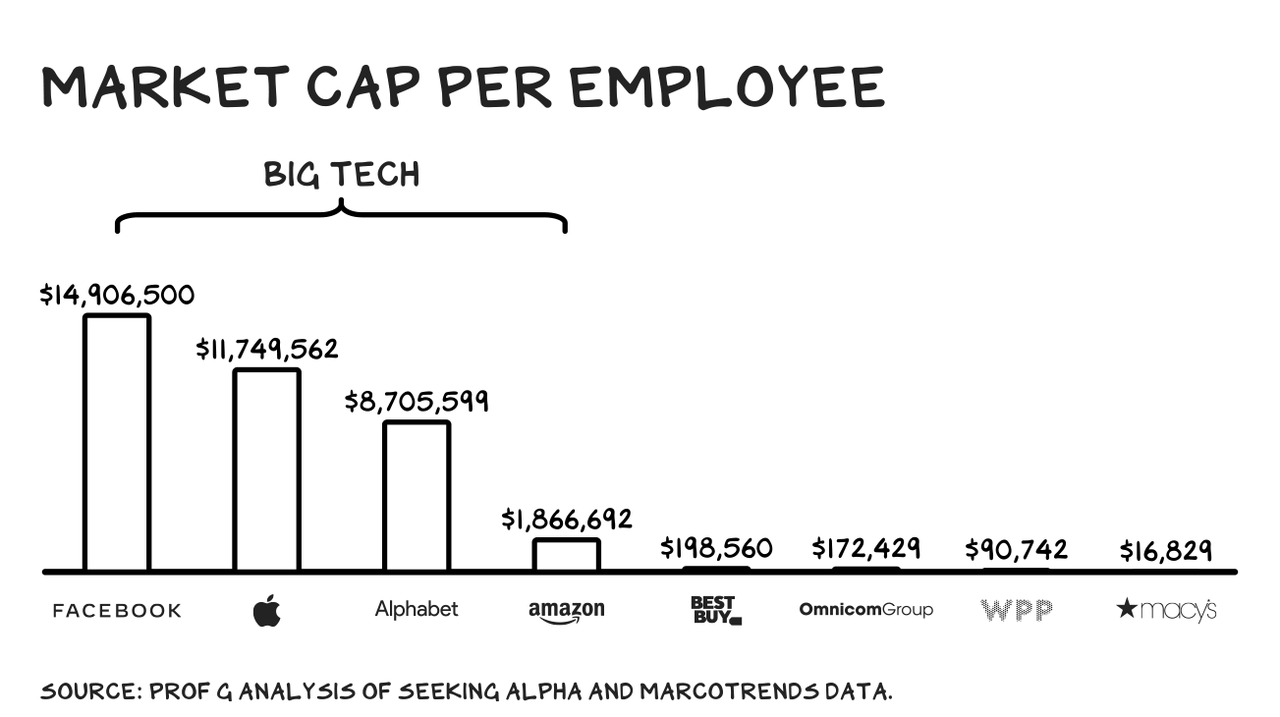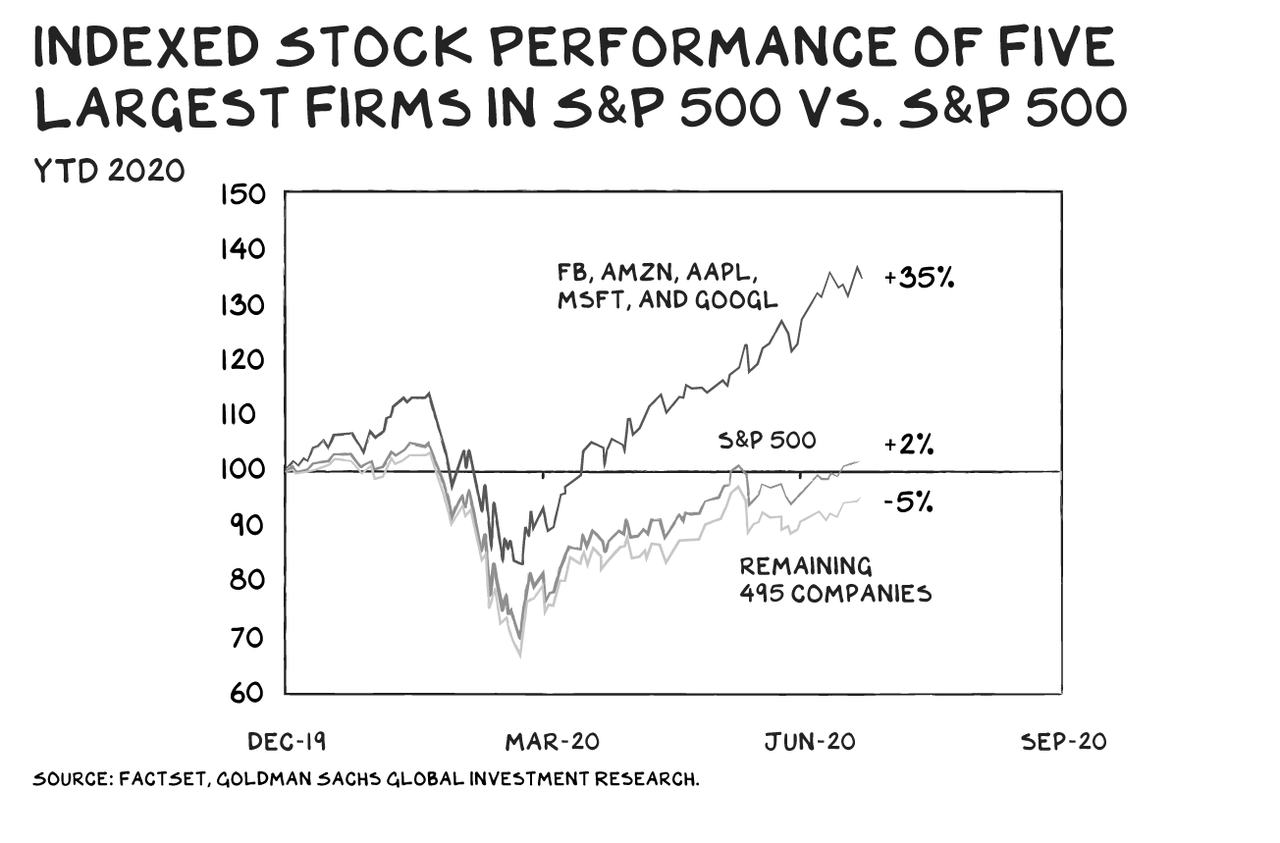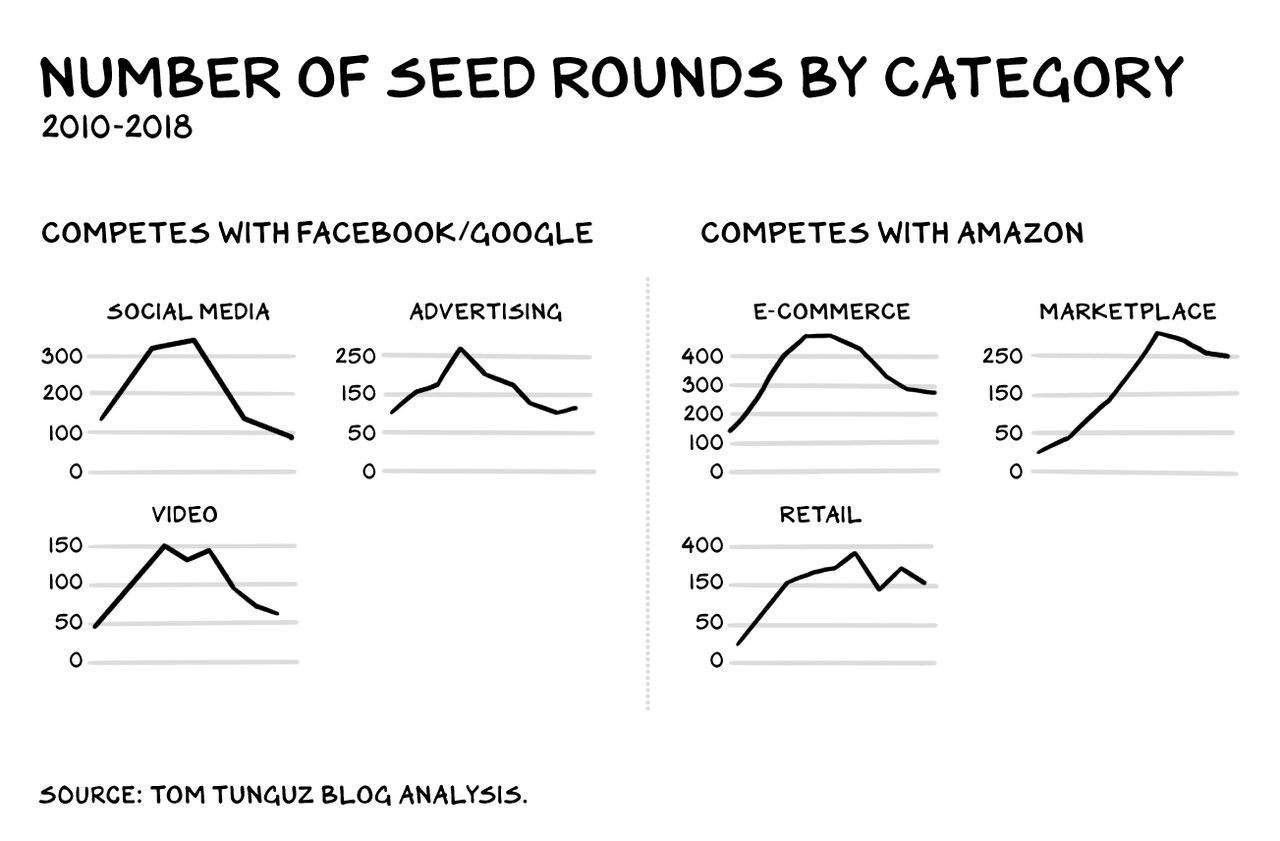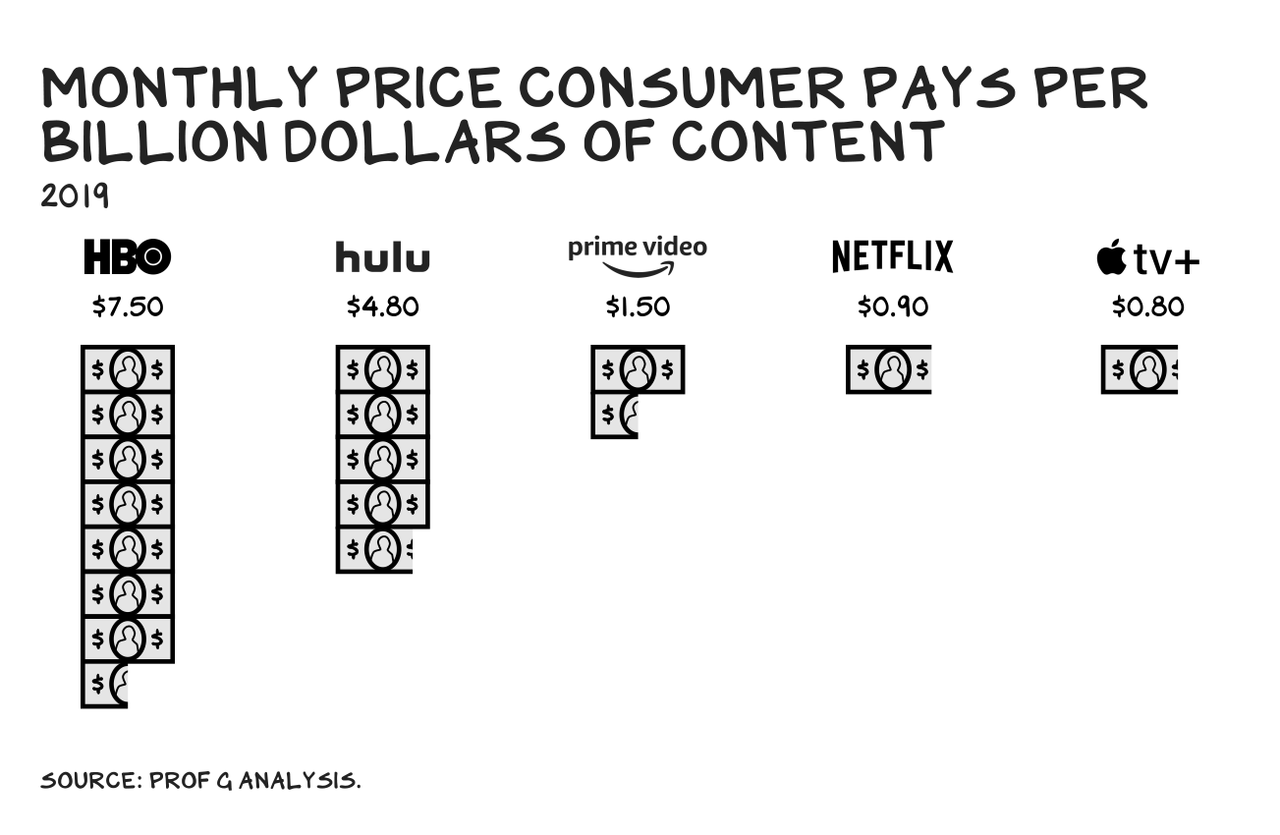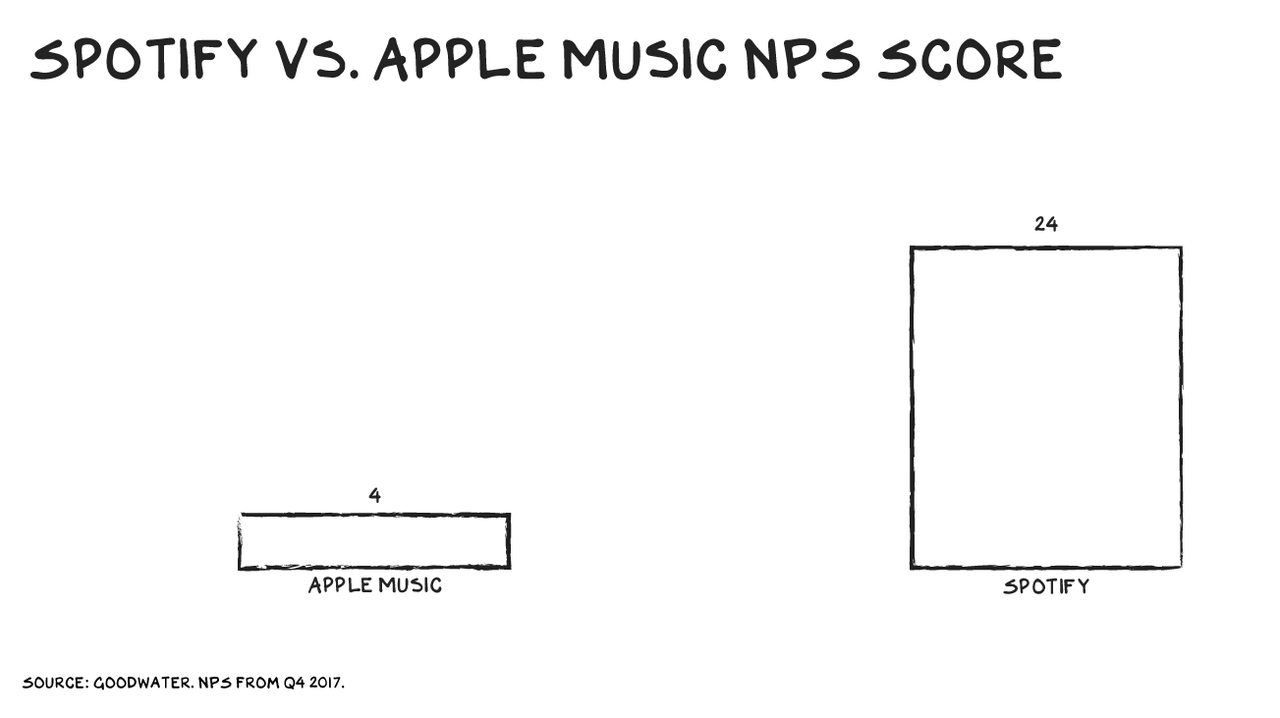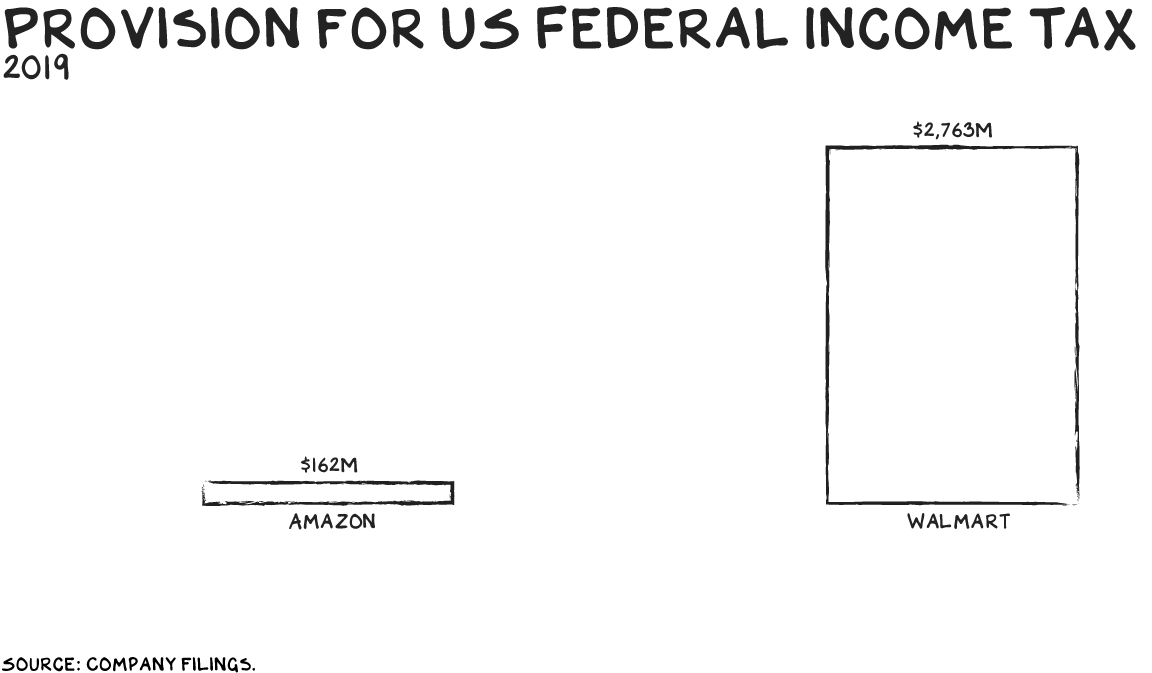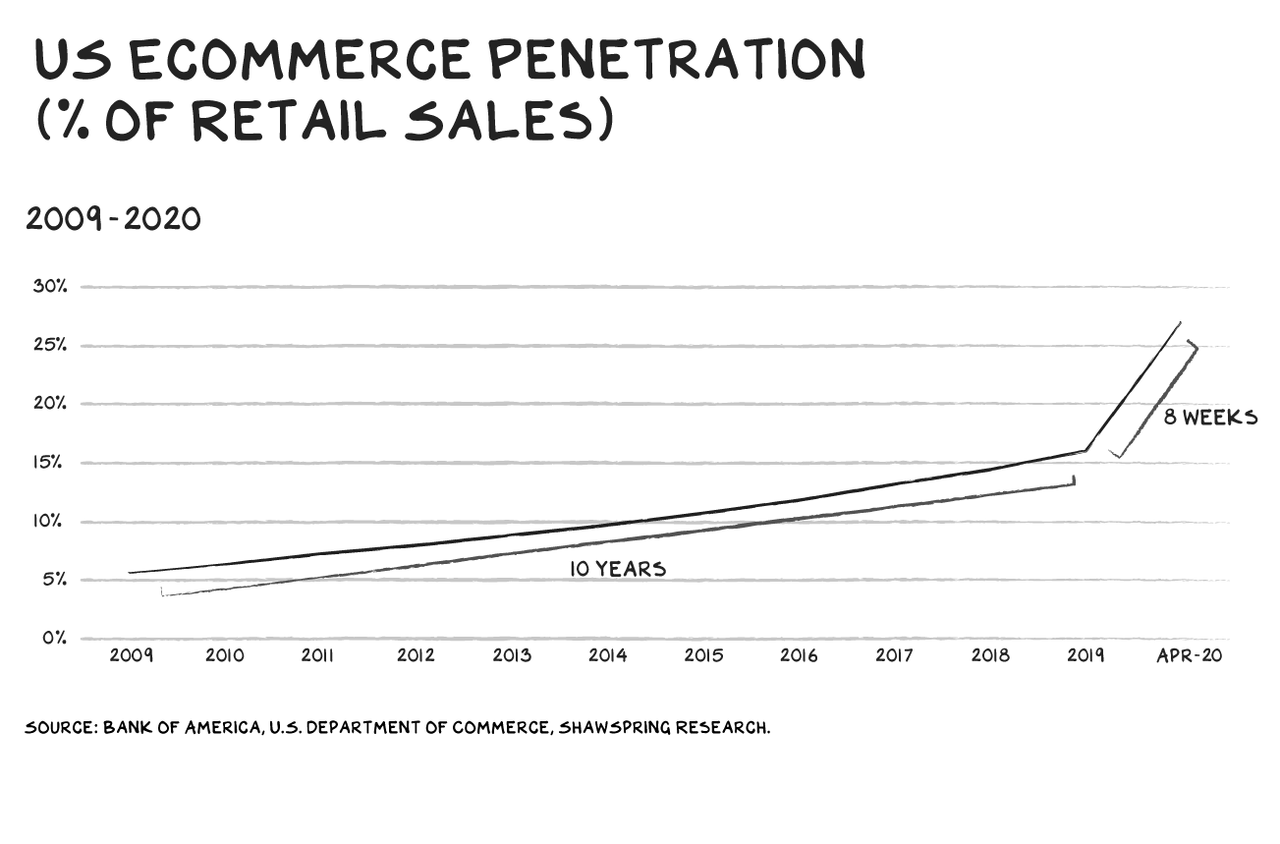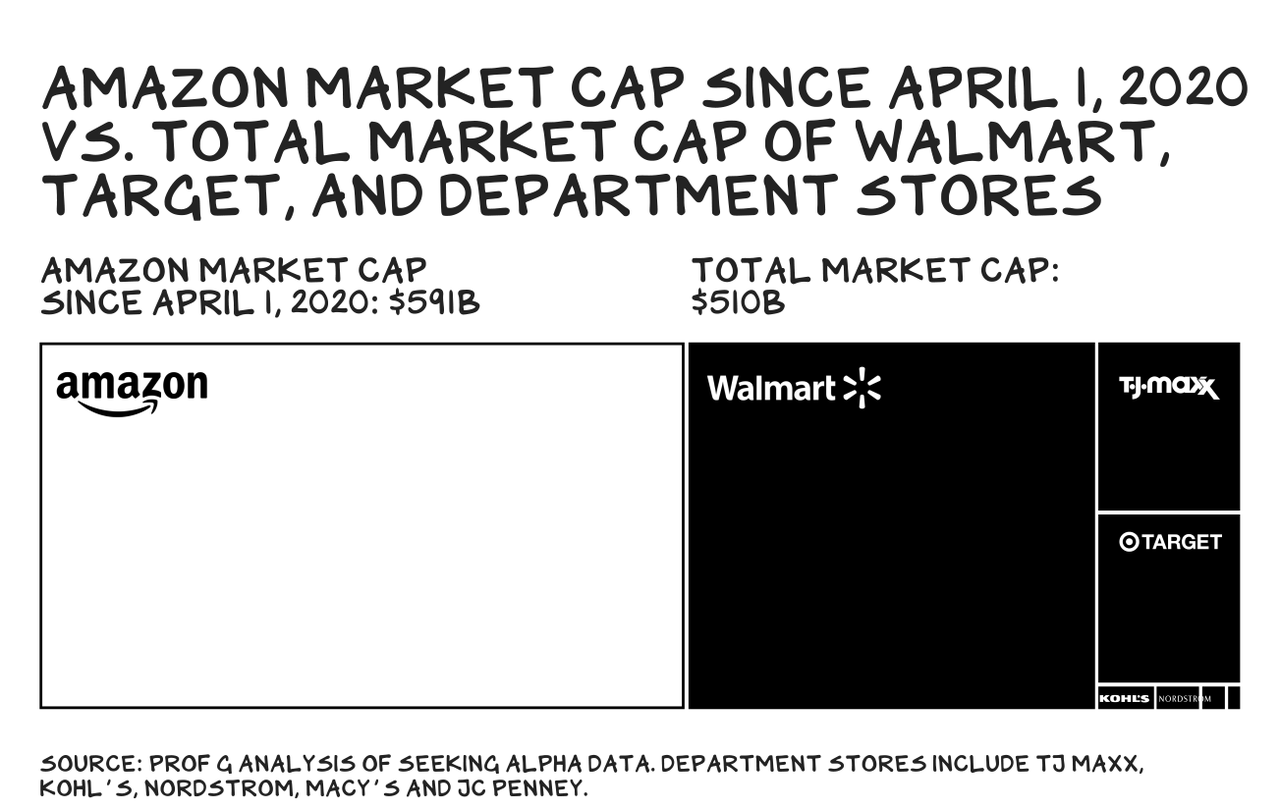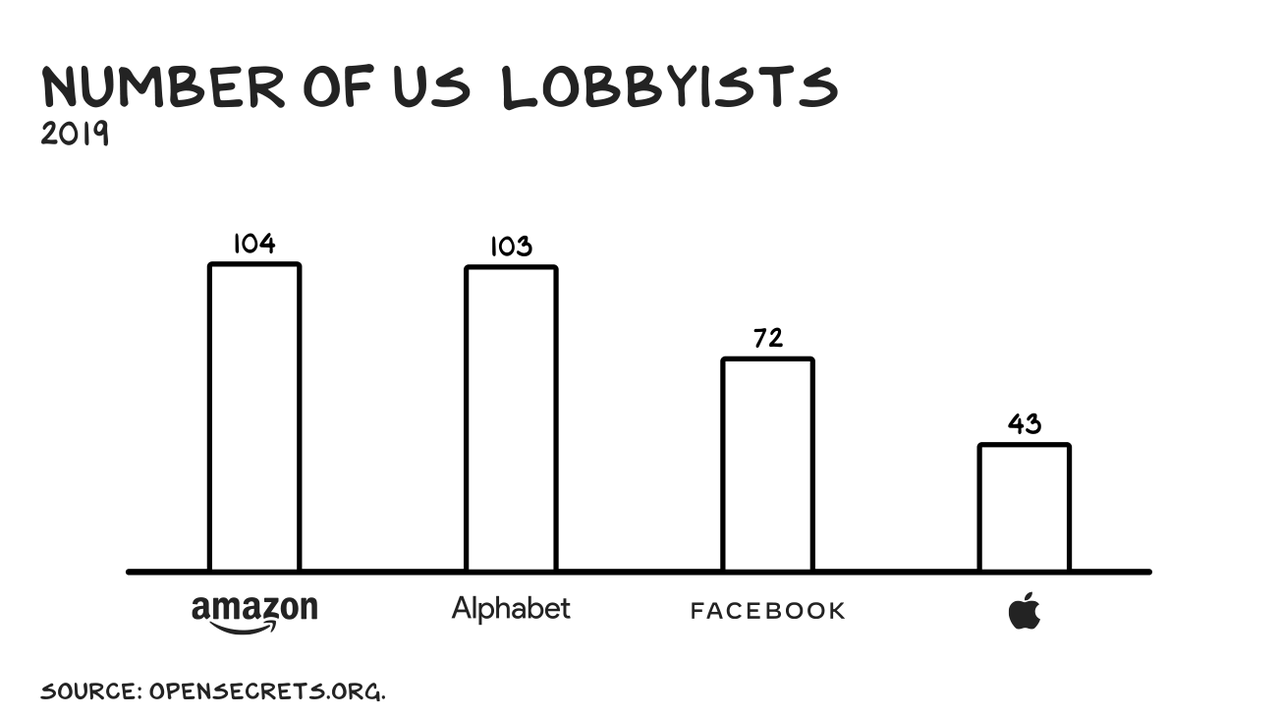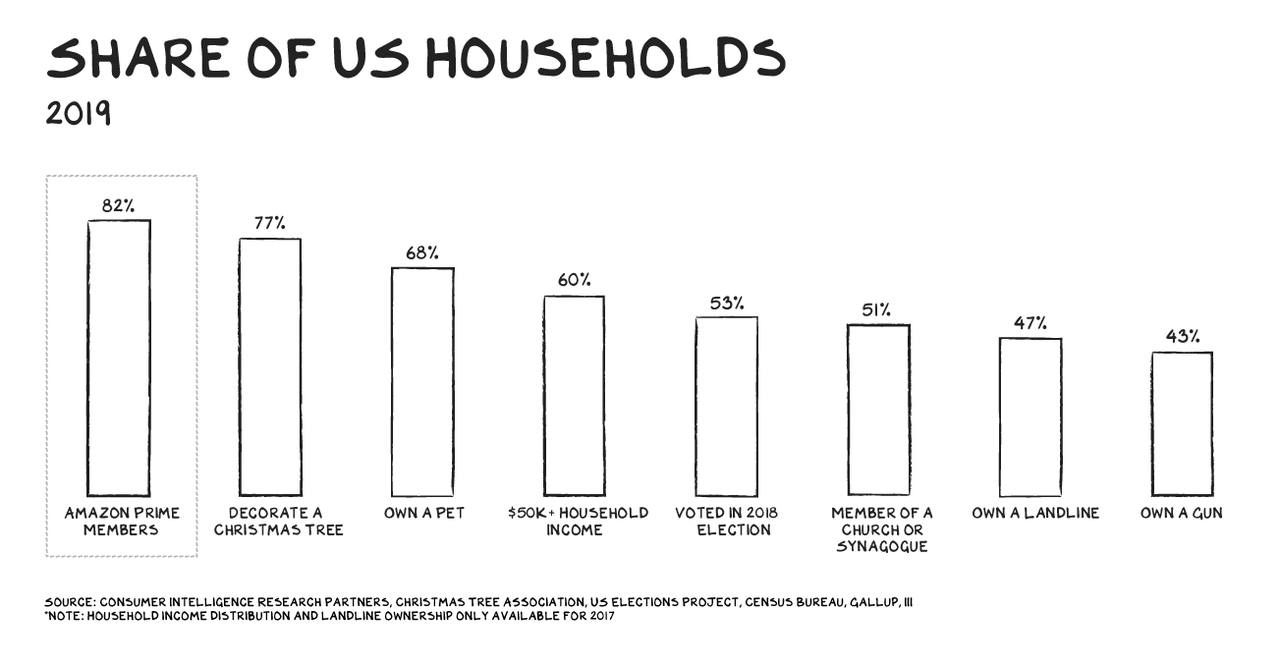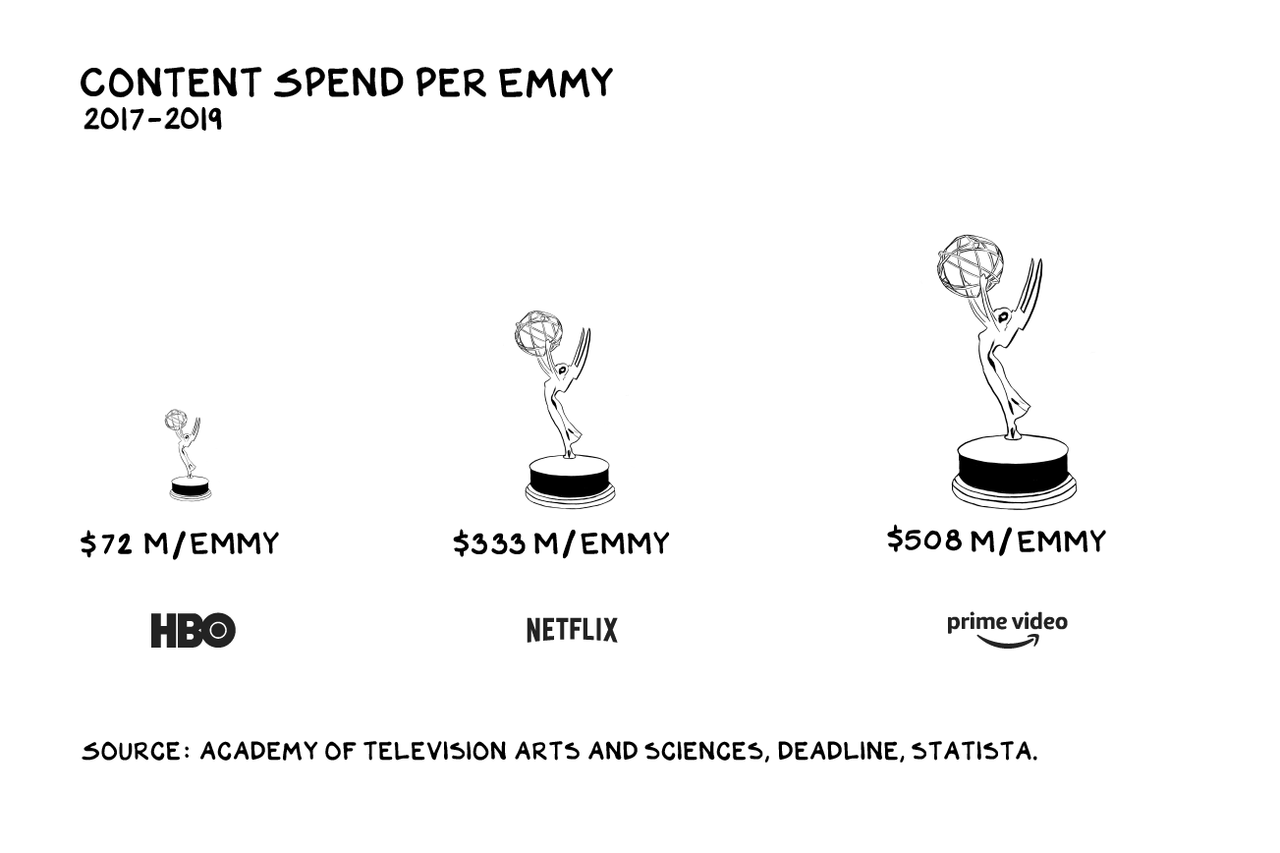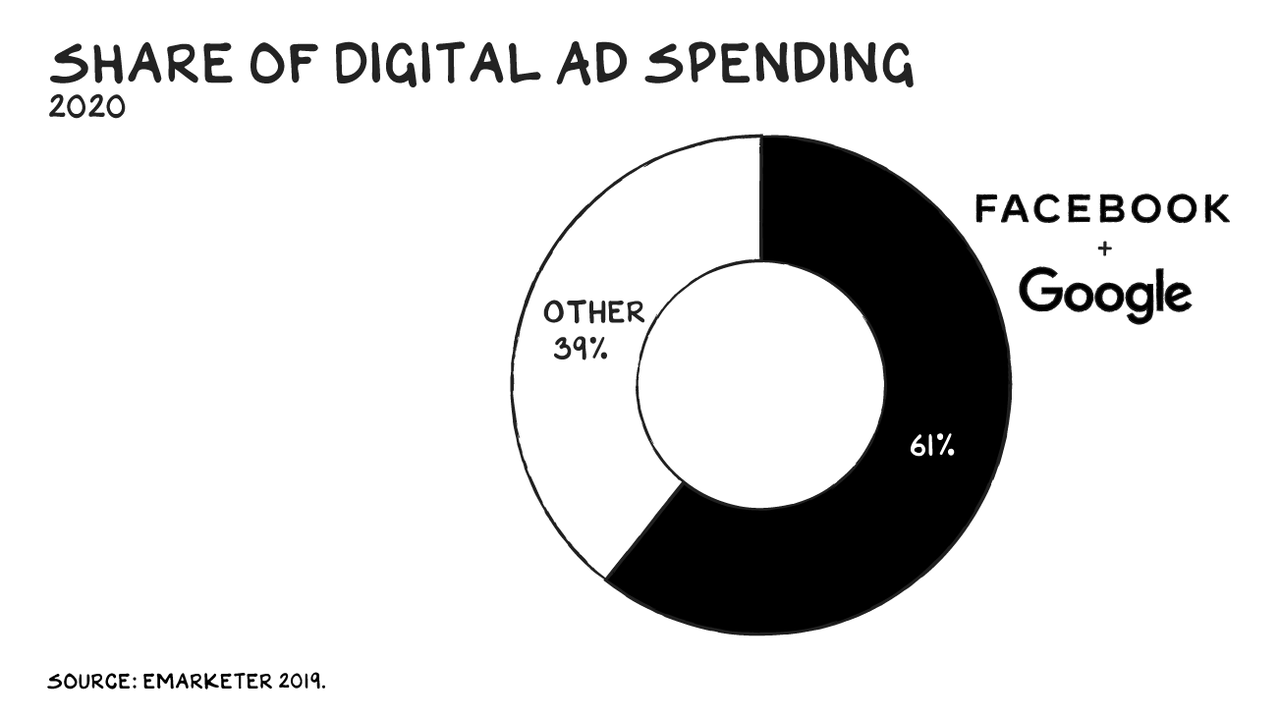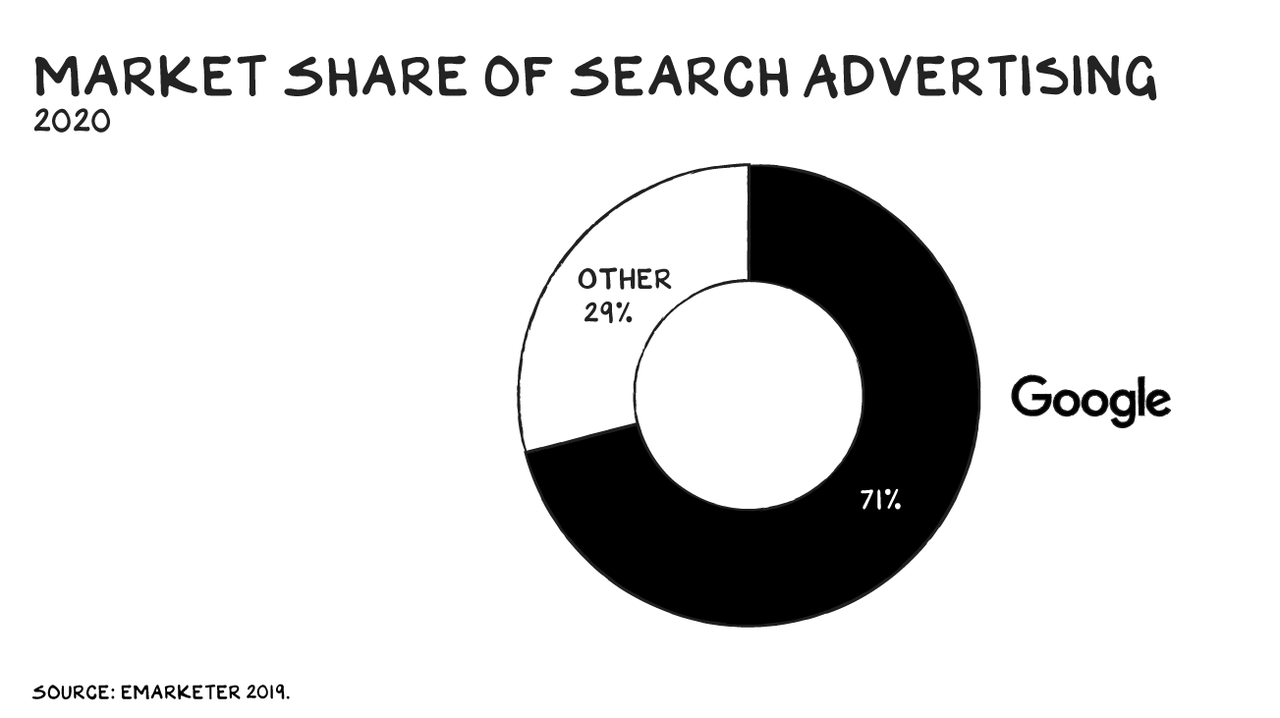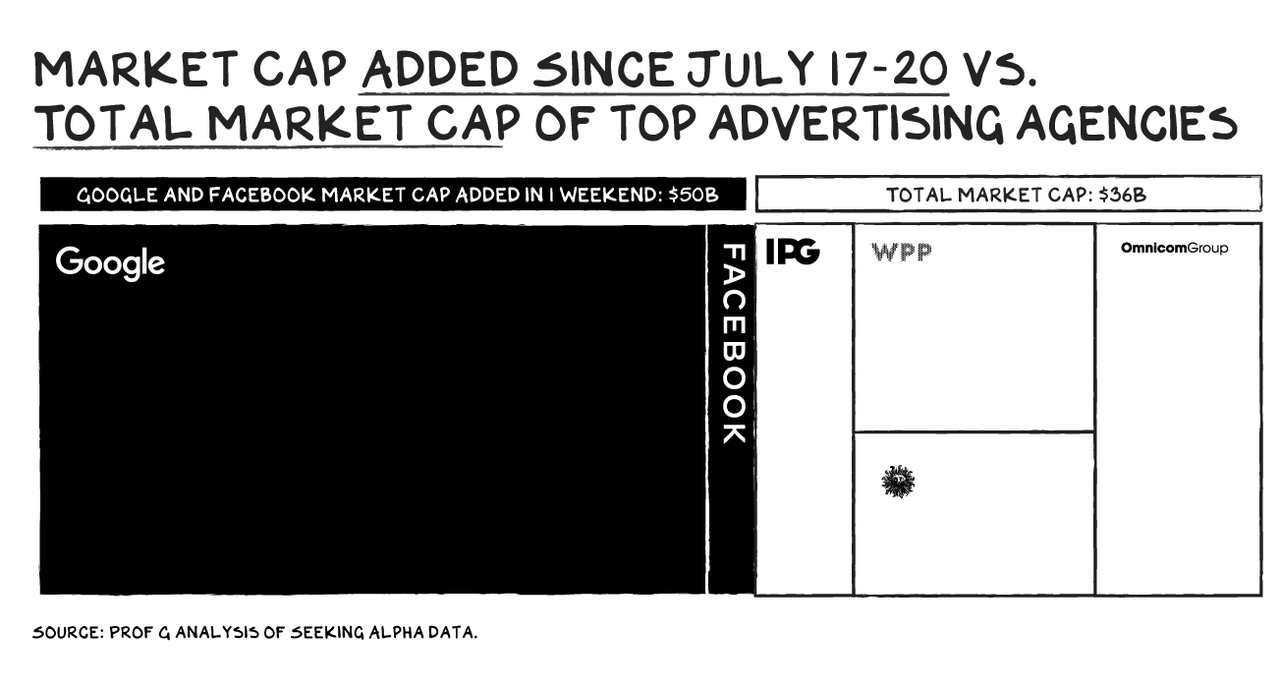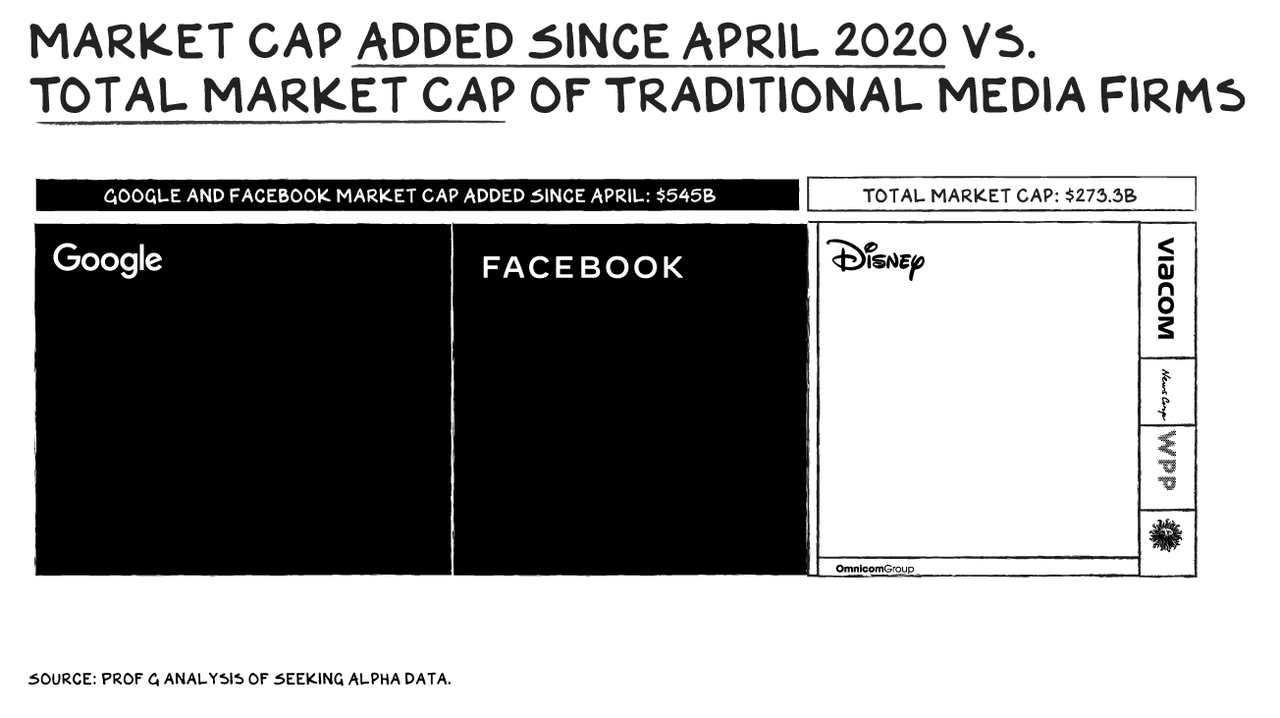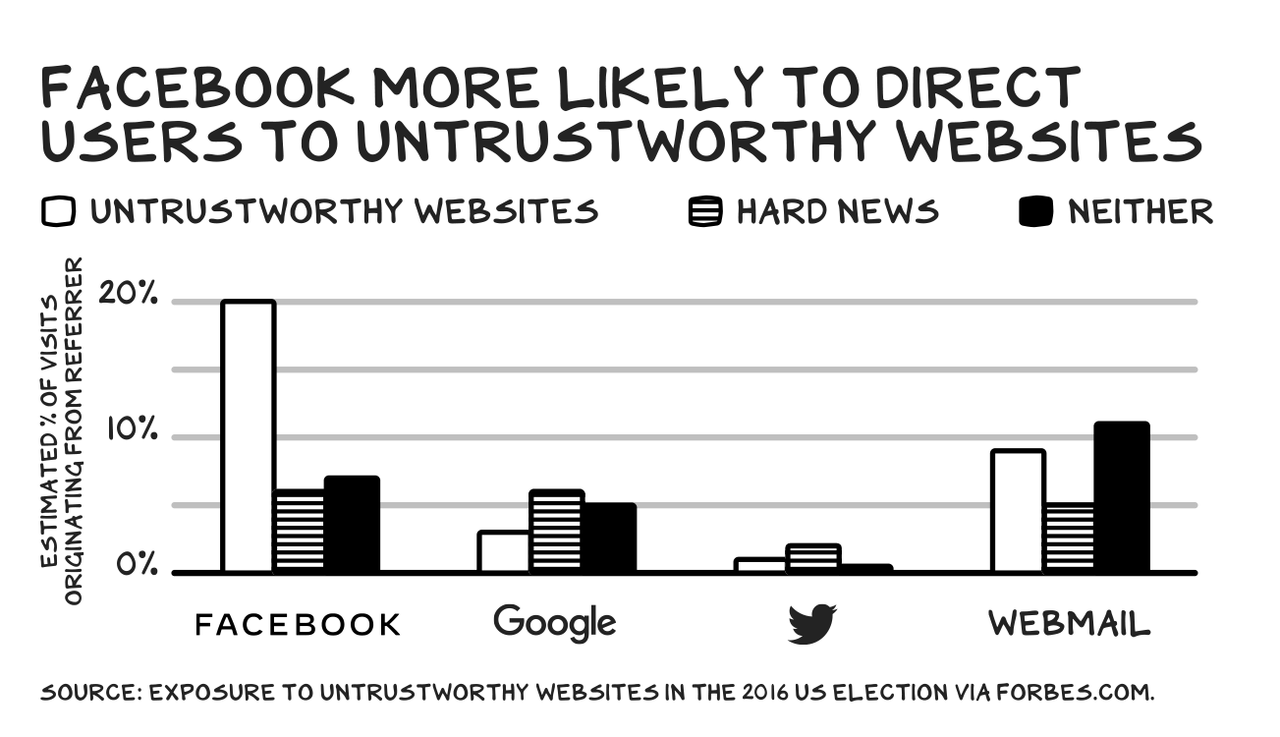“Fire & Fawning” – Scott Galloway: Here’s What Politicians Should Ask The Big-Tech CEOs Today
Tyler Durden
Wed, 07/29/2020 – 08:16
Authored by Professor Scott Galloway via ProfGalloway.com,
The CEOs of Apple, Amazon, Facebook, and Google are scheduled to testify in front of the US House Judiciary Antitrust Subcommittee later today. Some thoughts…
Big tech has won before the hearing starts. Agreeing to let all four testify concurrently inhibits the committee’s ability to go deep on any one issue, and will leave the American public with a sentiment instead of a viewpoint on big tech, much less any conclusions (such as, that the Obama DOJ was asleep at the switch, and Instagram and Whatsapp should be divested). The Covid-inspired remote format dramatically lessens the likelihood of an unscripted moment that reveals something the American public didn’t previously know. Fabric softener for tough questioning is the deep pockets that keep members in power.
When the show starts, Zuck will be the target of the most ire, as he’s an oligarch minus the charm. Bezos, on the other hand, will receive the least ire, as his command of soft power is second only to China. Being on these committees must be just awesome, as every member clings to their office as if they were Puerto Rican rescue dogs clinging to lamb lung fillet. (I see this with my dog Gangster. It’s a moment that gives you pause … to see how much a living thing can love something else.)
Bezos has the power to take away the committee’s lamb treats (he owns a powerful arbiter in the WaPo) and, maybe more important, they want invites to the best parties in DC (low bar) at the old textile museum — Bezos’s man cave in Kalorama. I think Bezos lacks character and code (he gamifies the commonwealth for his own enrichment #HQ2), but I’d love to roll with him, and so would every first ballot hall of lame panelist questioning him at the hearings. Cook and Pichai will likely just try to stay out of the line of fire and fawning for Zuck and Bezos, respectively. Expect Zuck to use two words repeatedly in his defense (tik and tok) as he attempts to wrap himself in the flag and convince the committee that he’s our national champion, singularly able to repel the invading Chinese … coming for our children.
But there is hope. By limiting the hearing to the antitrust subcommittee, the House gives more time to representatives who have domain expertise. The sharpest of these embers, if they take the right approach, may be able to move the needle from apathy towards outrage and build momentum for future change.
The key here is to recognize the medium is the message. Exploit the one attribute of the format that can be much improved: visuals. These always look awkward and very fifties during live testimony, though Representative Katie Porter does a great job with her mini white boards (note to self: get one). The “share screen” function should be the weapon of choice here. Words will communicate themes (you’re too big and abuse your monopoly power, which suppresses innovation, job growth, and the economy). Little is new here, but points can be communicated more effectively than before. The best opportunity to yield insight into why big tech should be broken up is to highlight the scale of the firms, and the problem. The winning cocktail is visuals and proportion.
The effective panelists at these hearings use the witness as a prop to stamp their passport on the way to the destination (you’re a monopoly). The strategy is simple: ask a question, share screen/visual, unshare so public can see an awkward reaction by witness, allow 5 seconds max for answer, interrupt, and wash/rinse/repeat.
So, as I’m hoping to be unanimously approved as US Ambassador to Australia in the Biden Administration (#itcouldhappen), here are my suggestions for visuals and questions:
All Four
Q: Messrs. Bezos, Cook, Pichai, Zuckerberg, your firms have added greater market capitalization in the last five years than the largest retailers and CPG firms have in total. This is a large portion of the entire consumer economy. If you were public servants, would you be concerned that too many of the spoils are being registered by increasingly fewer firms and people?
Q: Your market capitalization per employee is thousands of times higher than that of other companies in your sectors. Do you think your companies contribute to income inequality?
Q: Since the onset of the pandemic, nearly every sector, other than big tech and companies deemed too big to fail, has shed substantial value. Instead, since the beginning of the year, your firms and Microsoft have increased in value by an average of 35%, while the remaining 495 firms in the S&P 500 are down 5%. Every firm, sector, and economy appears to have incurred a transfer in value and power to your firms. Should we be concerned that your considerable advantage pre-Covid is now unassailable?
Q: Small business formation is at a multi-decade low. The fastest-growing sectors receive scant funding from investors. Why should someone invest in a search engine right now, or a music streaming business, or a social media platform, or an e-commerce firm, given the sizes of your companies?
Apple
Q: Mr. Cook, monopoly rent is when a monopoly producer lacks competition and thus can sell its goods and services at a price far above what the otherwise competitive market price would be, at the expense of consumers. Our information age is often called “the app economy,” denoting how important apps have become to commerce and consumption. Your firm and Google dominate the app ecosystem, with 62% and 38% shares, respectively. This chart shows the rents you are able to extract from every streaming video app. Every media company that wants to reach a consumer online must pay you a toll or rent. Do you think any of these firms believe that paying you this rent is a choice?
Q: Apple TV+ is offering consumers $1 billion in original content for every .80c a month the consumer spends on your Apple TV+ streaming video service. Isn’t it your opportunity to differentiate your $1,300 phones and fund Apple TV+ from the revenues of an unrelated product that allows you to offer a media product at well below cost? In sum, isn’t Apple guilty of “dumping,” that is, buying market share with unfeasibly low prices?
Q: Spotify is consistently rated as a superior music service to your Apple Music, yet Apple Music is growing faster than Spotify in the US. Isn’t this a function of you owning the rails, and being able to levy a 30% tax on a competitor while illegally reducing their discoverability in the app store?
Amazon
Q: Mr. Bezos, you are the wealthiest person in the world. Your wealth exceeds the GDP of Kuwait and Luxembourg, combined. It exceeds the defense budgets of Israel, France, Germany, and the United Kingdom, combined. A common feature among the other wealthiest Americans of the 20th century (Rockefeller, Morgan, Mellon, Carnegie, Gates) is that most/all of these men presided over firms that were eventually tried for monopoly abuse and deemed monopolies. Why should we believe your wealth accumulation is any different?
Q: Last year, Amazon paid $162 million in federal tax while your largest competitor, Walmart, paid almost $3 billion. Do you think this level of participation in our country’s infrastructure and services is appropriate for a company worth $1.5 trillion?
Q: Due to Covid-19, US consumers are expected to spend an additional $41 billion on retail ecommerce in 2020. Since you control 38% of US e-commerce revenue, doesn’t this mean that you’ve added at least $16 billion in topline revenue due to Covid while thousands of small businesses have folded?
Q: In a five-week period during the pandemic, your firm added the value of the world’s largest firm by revenue — Walmart. If your firm can accrete the value of the largest firm in the world in five weeks, and money is power, then isn’t your firm the most powerful private entity in history? Hasn’t your firm reached a level of soft and economic power well beyond the point when the DOJ has historically taken antitrust action?
Q: Our understanding is your firm has more full-time lobbyists in Washington than there are sitting US senators. Are you aware of any retailer or tech firm, other than Google, that has this many lobbyists attempting to suppress regulation or antitrust action?
Q: Mr. Bezos, 82% of American homes have Amazon Prime, more than voted in the 2016 election, have a pet, attend church, or decorate a Christmas tree. Can you name any other firm that has a recurring revenue relationship with 8 out of 10 households?
Q: Your video content, as registered by IMDB and the National Academy of Television Arts & Sciences, is far inferior to the content offered by AT&T’s division (HBO), yet you refuse to distribute HBO Max as a stand-alone offering on your service. Doesn’t this mean you are leveraging your distribution power to weaken the competition (HBO Max) and reduce consumer access to better content?
Q: Mr. Bezos, the recently released TOS for your audio and podcast platform say that participants on the service cannot say anything bad about Amazon. Are we to assume that all assets you control, including The Washington Post, are restricted to only positive comments regarding you and your firm?
Q: Mr. Pichai, your search engine is the default on Android devices, and you have a multibillion dollar contract with Apple to be the default search engine on the iPhone. You’ve also bought digital advertising networks to build your part of the digital advertising duopoly. What company — whether a search business or an advertising firm — can begin to compete with a behemoth with such a massive advantage and such deep pockets?
Q: Google owns the dominant digital ad server, DoubleClick Ad Exchange, or AdX. Over 90% of large publishers sell their ad inventory on AdX. And Google owns the dominant tool, Google Ads, through which advertisers purchase inventory on AdX. Don’t you think controlling both the auction house for ad space and the main auction participant for buying those ad spaces allows Google to engage in anticompetitive pricing?
Q: You’ve been fined three times by the EU for acting in ways that harm competition. Google searches favor YouTube ahead of other video rivals. Searches often display results just under the question as the user types, making it unnecessary to click any links. This deprives other firms of revenue. You present search results as you see fit, independent of the cost to other businesses. Don’t you think having 71% share in the search business and increasingly locking other companies out of profits through search is unfair use of monopoly power?
Q: YouTube has come under criticism many times in the past for radicalizing our children through an algorithm that suggests increasingly violent and extreme content. A user can start out with “downtown NYC” and within three videos they are being offered conspiracy theories about how 9/11 was an inside job. One of your former engineers accused YouTube of perverting civic discussion through radicalizing algorithms. Don’t you think that if YouTube were its own company and had more competitors of similar size, that it would be forced to work harder to correct these algorithms that are so toxic to the public good? If the best corrective mechanism of a free market is competition, where is the competition to force you to do better?
Q: Mr. Pichai, can you name any other firm, anywhere in the world, that has this level of market share of a sector greater than $100 billion in size?
Q: Mr. Zuckerberg, a Princeton University study of Americans’ internet habits leading up to the 2016 presidential election found that Facebook led users to untrustworthy news sites 15% of the time, and to trustworthy news sites only 6% of the time. Studies have also found that the underlying Facebook algorithm, which promotes emotion and outrage, benefitted Trump more than Clinton. Do you feel partially responsible for the erosion in the sanctity of our elections?
Q: This summer, a number of Facebook’s biggest advertisers announced a boycott of the platform in response to your inadequate handling of hate speech. In response, Nick Clegg, your Vice President for Public Affairs, said, “We’ve made huge strides … But, you know, on an average day, there are 115 billion messages sent on our services around the world, and the vast, vast, vast majority of that is positive.” Clegg’s defense is also an admission that Facebook is too large to safely manage. Are you too big to protect your platform from hate speech and socially divisive messaging?
Q: As we saw in the 2016 elections, Facebook’s power can be exploited to disrupt elections, broadcast viral propaganda, and inspire deadly hate campaigns around the globe. Facebook is an algorithmic rage machine that perpetuates conspiracy theories (including that vitamins will protect you from Covid) at a far greater rate than truth. Enragement is engagement. Nearly half of all top-performing posts that mention voting by mail are false or misleading. What good are you offering your users that outweighs the cyberwar Russia fought on your platform, and that it is prepared to fight again, the systematic surveillance of users, and the torrent of misinformation on your platform?
Q: Teen suicide has skyrocketed — up 77% for older teen girls and up 151% for younger teens. Hospital admissions due to self-harm are up 50% for 15-19-year-old girls and up 200% for 10-14-year-old girls. Gen Z is on the brink of the worst mental health crisis in decades. Do you think platforms like Instagram, where girls perpetually feel their appearance doesn’t match up to filtered images, has something to do with this mental health crisis?
Q: Mr. Zuckerberg, you are in sole control of a platform whose algorithms select and deliver content (news and entertainment) to 2.6 billion people. Your algorithms are opaque to government agencies. You are the principal source of information for a cohort larger than any country or religion — a population greater than that of China and the US, combined. You cannot be removed from office, and will likely control these algorithms for the next 5-7 decades. So, we’d like to get to know you better. You know, get a feel for the real Mark Zuckerberg. A couple of questions:
Are you a pathological liar?
Do you display a lack of remorse or guilt?
And again…
Are you a pathological liar?
via ZeroHedge News https://ift.tt/3341UaX Tyler Durden
